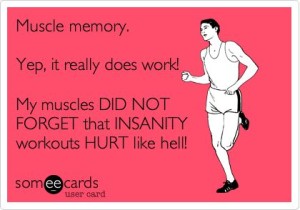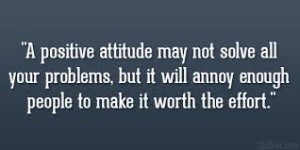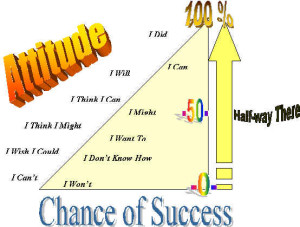Most people are familiar at some level with the concept I refer to called muscle memory. It is synonymous with motor learning which is the long term memory associated repetition of a task. What the body does over and over again, it begins to instinctively develop as a default physicality. This can work both in a positive or negative manner. If you consistently train to deliver strikes for example, always maintaining balance, good posture and proper breathing, then it stands to reason that when you compete or use your skills in a real life situation, that you are more likely to retain those important principles. Those principles are important by the way for a number of reasons. Firstly, techniques were created and used historically under real combat conditions and adjusted and passed on only if useful/successful. Or they create part of the developmental process whereby your strength, flexibility or coordination is improved.

It’s not a given unfortunately, the body is fickle and the fight/flight/freeze syndrome may come into play. This is where the body reacts to a stressful situation with a range of physiological actions to immediately prepare for. If you train with realistic scenarios in mind, or with training partners who can put you under controlled pressure, then I would presume the freeze reflex may be reduced and the fight reflex may be easier to activate. I think it’s fair to say that what the body is familiar with through sufficient repetition, it is more likely to recall.
Negative muscle memory however, can occur if you are someone who doesn’t pay attention to fine points or correcting idiosyncrasies. In this case, no matter how many millions of repetitions you do, the optimal technique will not come to you. In fact, you are likely to be ‘pushing’ it further and further away by reinforcing the wrong details. The more you practice without attention to minutiae, the harder it will be to correct those idiosyncrasies. In my experience, unlearning wrong details is far more difficult than taking the time to get it right in the first place.
So what are some reasons for students not learning details? Some observations I’ve made, primarily relate to the student’s ego. Humans naturally enough dislike having faults or criticisms pointed out, and may therefore feel judged, disappointed (in themselves or for the instructor), upset, picked on, stupid, uncoordinated or that they are a failure. So one defense mechanism to feeling these ‘negative’ emotions is ‘closing off’ or failing to register what is being said. Have you ever given feedback but felt like it was not being taken on board? Or they refuse to believe it? Or they justify it in an often pitiful way! “Yeah, but ….”
Another potential reason for failing to study forms in depth, is that the student is overly focussed on the objective and losing awareness of the ‘journey’. In kung fu for example, students traditionally learn through forms (choreographed routines). I have many, many times seen students rush to complete learning their forms, thinking that it signifies the end of that one and therefore the beginning of something new and exciting – the next form! Is this the result of the MTV generation, needing lots and lots of sensory stimulation to stay interested?
Perhaps it is the fault of our disposable spoon feeding society? I have seen this attitude in other education environments too. With adult drama students, where they (generally) are content to aim for a 51% mark which gives them the same qualification as if they had earned 100%. Even if they fail, todays students are given repeated opportunities to pass. Even, when there is some sort of disability involved, then allowances are made, eyes turned, boxes ticked. Of course, people who need help should be given help, I just think not enough validation goes into the efforts invested prior to making allowances. I think the government driven assessment protocols have a lot to answer for. They have created an entire generation of ‘good enough’ which in the real world is RARELY good enough to succeed.
Often there is a subconscious (or even conscious) competitiveness within the student in trying to beat others, or keep up with others instead of focussing on their own progress in their own time. Ironic, considering students who have progressed much slower are regularly seen to end up with a far better product once finished. It would be fantastic to see more of that! In order to learn quickly, they sacrifice detail and understanding and satisfy themselves with the ‘right shapes’.
In fact, ‘completing’ the routine barely scratches the surface of ‘learning’ the form. At least that’s the case if you want to understand the techniques, perfect the techniques, be able to use the techniques, understand the essence of the form, integrate qi (energy) and focus into the form, coordinate breathing and eye contact with the form, and more. If you don’t want these things, then why are you training in martial arts? In days of old, a single form contained the entire fighting system for an individual family/style and they would spend their lifetime dedicated to the understanding and application of it!

Sometimes the lack of details is the fault of the instructor. Many schools focus on pushing students through quickly to gradings so as to line their pockets. Or maybe a teacher lacks detailed knowledge themselves (which then goes back further to their instructor!). Often the teacher process may not suit a particular student’s learning style. Studying martial arts is traditionally a very visual process. For centuries, martial arts were passed on generation to generation through observation. Watch and follow the Master. Don’t ask questions, don’t improvise, just perfect and mimic the movements as close as possible to the Master. But in this day and age, a good teacher will recognise that sometimes students will respond quicker or more intuitively when taught in an auditory or kinaesthetic manner.
Something I have observed during my journey from student to teacher, is that in teaching a form to someone else, I was relearning it myself. Large improvements occurred to my forms due to the teaching of it to someone else, breaking it down, analysing the biomechanics, understanding the intricacies, purpose and precision of even the smallest movements.
With the teacher at fault examples, there are strategies that can be utilised that will provide a higher degree of success. More practice at diagnosing the student’s learning styles for example. Simply checking what instructions yield the best results for the class as a whole or for an individual can be enlightening for the instructor. I have found that best results occur when I deliver instructions using multiple methods. A groin kick can be physically demonstrated, verbally described using “lift the knee, extend the foot” commands, analogised by saying “imagine you are flicking water off your foot”. I can even physically lift a student’s leg to the right position, then get them to close their eyes to ‘feel’ the action. Doubtless there are many more possibilities, but I wonder if many teachers just resort to the physical demonstration. Might seem obvious to them, especially if that is how they learnt it, but for a non visual person a description may work better.
If a teacher lacks details themselves then perhaps they need to look more deeply at their work or refer back to their own instructor. And if they are pumping students through the system, then they have greater problems to worry about than financial morals. That’s a topic on ethics for another day entirely!
If criticism is not being accepted by the student, the following strategies could be attempted by the teacher. Be gentle and tactful in your delivery. Bookend your criticism between 2 positive statements. Give them the note/s individually not in front of the whole class. Be affirming and use positive reinforcement wherever possible. Don’t give them too many notes at once – typically, I find 3 at a time is enough to focus on without them being overwhelmed. Be reassuring and patient. Lead by example.

Attitudinal memory, for want of a better term, is just as important. If we automatically focus on the mistakes we make, the wrong choices taken, react negatively to decisions made, then we deny ourselves the opportunity to maximise the new options presented. We waste our focus and attention on what has already happened and are distracted from new possibilities. That’s not to say we shouldn’t learn from our errors or that we should ignore non optimal circumstances, but instead put time aside for reflection and learning rather than immediately focus on the ‘failure’.
A simple combat example is as follows. In evading a committed right straight punch we could move to the left or right. Logic tells us that if we move to our left then that is the preferred option due to the position on the outside of the attacker and their inability to follow up effectively. Now, if we react ‘wrongly’ and move to our right (the attackers inside line), then follow up attacks are more likely to be delivered. We have two choices. We can focus on the ‘wrong’ move, perhaps even try to correct it, but chances are our brain will be distracted, our reflexes too slow, and timing will be almost definitely out leaving us vulnerable. Or, we can recognise our non-optimal choice and make the best of the situation realising that our defensive guard needs to remain and that new and different counter options are available.
The same could be said for focusing on the ‘right’ choice too. If we are so busy patting ourselves on the back for ‘correctly’ evading to the outside, then we may miss the fact that our opponent has spun with a back fist coming our way. Wait for the immediate objective to be resolved before reflecting with congratulations or commiserations.
A practical everyday example might be realising half way through a semester of study that we have selected a particular subject that is boring, irrelevant or just plain unenjoyable. We can focus on that and constantly remind ourselves that we don’t like it, don’t need it, skip those classes, spend more time on other subjects etc. Or, we could say, OK, this is not what I wanted but if I still put the effort in, it will boost my overall GPA. Find the positives for doing the subject, whether it be recognising what it is you truly do like, maybe it’s the skill or experience of the teacher, or a future subject you now have the prerequisite for. This more positive outlook will surely yield better results. At the right time obviously, we can reflect and acknowledge that we need to steer back on course, with future subject selections, be thankful that we now know from trial and error that a certain field is not what we had hoped it to be.

But for the main problem I have raised, I think we have a duty as instructors to gently ‘force’ the student to slow down, learn deeper not broader and find that glimpse of what our martial forefathers knew. Perhaps we need to explain the benefits of learning the traditional way and the detriments of rushing the study. I for one in recent years, have made students apply for gradings, proving their readiness through the demonstration of appropriate skill level. This has always been there in principle but will be more readily instigated by being on paper. Therefore students who have ‘done their time’ will no longer be getting through with moderate grades or probationary levels. I daresay this practice will reduce student numbers, but perhaps in time, the demonstrated quality of the school will bring its own rewards.


Great article. It’s good to remind ourselves that there is no shame in slowing down our moves to learn them better.
Having said that, after having practiced slowly numerous time, speeding things up can be a way to put oneself under pressure.
I really liked this article. It was very refreshing to read your comments regarding “Spoon Feeding”. I completely agree. I would like to be a student to a teacher that has these views and to a school that is interested in quality. I am still doing my research on Kung Fu schools in Brisbane but I may have to settle for something more local on the Northside. But this article is a real winner nonetheless.
Thanks for taking the time to read and comment. Its great to hear of someone who wants to pursue quality and not just take the ‘easy road’. Should Bardon and Macgregor not suit for you to trial/join, I wish you all the best in finding the right school for you. Let me know if I can be of any help. Yours in Ming, Shifu Jason